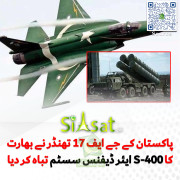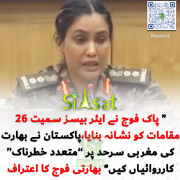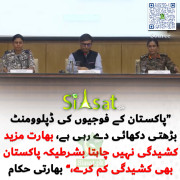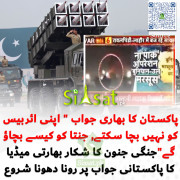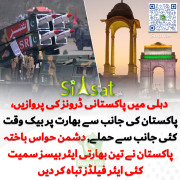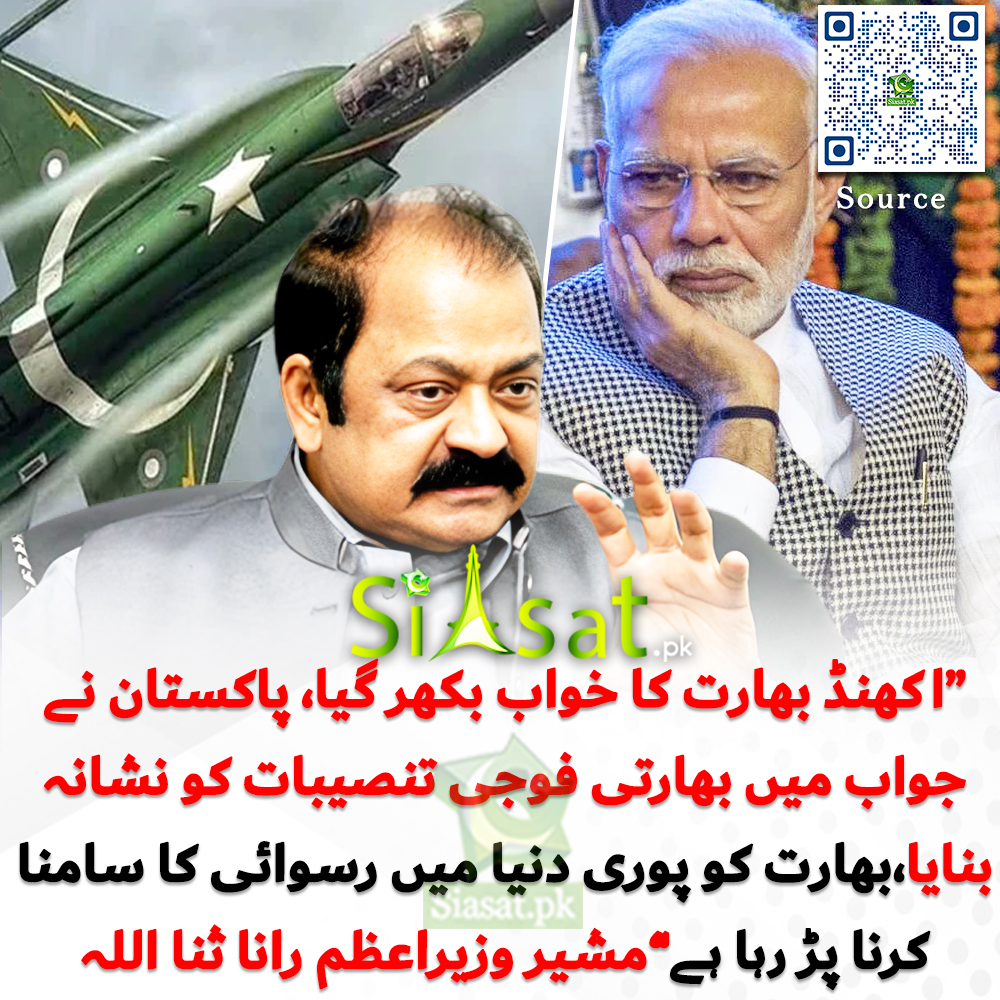canadian
Chief Minister (5k+ posts)
Un-Canadian, anti-Arab or pro-Israel? Accusations fly in spat with U.A.E.
Published On Fri Feb 4 2011
 A University Health Network booth in the Canadian pavillion at the Arab Health Exhibition in Dubai last month. The Canadian business community in the U.A.E. is hoping that the diplomatic dispute won't be long-term.
A University Health Network booth in the Canadian pavillion at the Arab Health Exhibition in Dubai last month. The Canadian business community in the U.A.E. is hoping that the diplomatic dispute won't be long-term.
NOUSHA SALIMI/FOR THE TORONTO STAR
Bruce Campion-Smith Ottawa Bureau chief
DUBAIDown this two-lane road in the desert, south of the glitz and glamour of Dubai, lies a secret the United Arab Emirates, even now, wants to keep under wraps.
Bright red roadside signs warn motorists of no photographs and no approach.
But continue past the camels wandering at roadside, past the tan-coloured jet perched on a pedestal and you come to the front gates of the Minhad Air Base, where an armoured vehicle stands ready to stop interlopers.
For nine years, this air base was Canadas staging post for its Afghan mission. From here, military transport planes ferried supplies and troops and on two occasions Prime Minister Stephen Harper himself into Kandahar.
The Canadians called it Camp Mirage, its actual location never formally publicized out of respect for the U.A.E., which didnt want its support of Western militaries broadly known.
The secret is out now and the diplomatic spat that cost Canada the use of this key base is no illusion. And the story of how Canada came to diplomatic blows with this tiny Persian Gulf nation is one of tangled diplomacy, domestic politics and, in the blunt assessment of one observer, the Conservatives anti-Arab agenda.
Un-Canadian.
Its a comment heard frequently as local academics and business people try to describe the diplomatic tiff that has put a freeze on relations between Canada and the U.A.E.
I think everyone was a bit caught off guard, said Tarik Yousef, dean of the Dubai School of Government, a think-tank affiliated with the Harvard Kennedy School of Government.
The two sides didnt understand each other well, didnt understand where they were coming from, how much this mattered, the constraints, the options, the timeline, he said in an interview.
Like two spurned lovers, there are bruised feelings on both sides.
For Emiratis, there is the sense that their contribution to the war effort hosting Canada rent-free for nine years, welcoming its warships at its ports and even sending troops to serve in Afghanistan wasnt recognized or respected in Ottawa.
On the Canadian side, theres deep animosity at what they claim was the U.A.E.s decision to link its demand for greater air access to Canadian airports with Canadas continued use of Camp Mirage.
Officials in the U.A.E. insist the two issues were never explicitly linked. Instead, they say it was only raised in the context of the broader bilateral relationship in a moment of frustration as talks over the air access dragged. But there is acknowledgement here that raising the base issue at all was a mistake.
It prompted Harper to lash out at the U.A.E., calling into question the sheikdoms loyalty as an ally, remarks that have caused hard feelings here.
For Emiratis who prefer quiet diplomacy and emphasis on friendships, the Canadian backlash has caught them off guard and left them angry.
Yousef called the public attacks on the U.A.E. uncharacteristically un-Canadian.
With a possible federal election in the offing, he wondered whether Harpers tough talk was aimed at impressing a Canadian audience.
Perhaps they played too much to the domestic political equilibrium in Canada and ignored the profound effect when people heard them, he said.
That again reflects culturally, political misunderstanding of how things work. The U.A.E. is always more comfortable with closing deals quietly and not allowing a dispute to drag on and flare up, he said.
The Canadians are faulted for failing to comprehend the importance that the U.A.E. having staked a chunk of their economy on aviation placed on getting those extra flights.
They asked for something small in their view that was important to them that was casually disregarded. said Taufiq Rahim, a Canadian academic who is a visiting fellow at the school.
They felt they were doing a lot of giving and Canada was doing a lot of the taking.
Its par for the course for Harper in the region. I think he has a disregard overall for the Middle East, the importance of relationships with countries here, Rahim said.
Yousef also suggests the Americans would not have made the same mistake.
U.S. foreign policy machinery is much more capable, much more aware, much more able to operate and get things done, if only because it has invested a long period of time, invested a lot of resources and a lot of people on the ground, he said.
Yet Abdulkhaleq Abdulla, a political science professor at Emirates University, doesnt buy the explanation that fouled diplomacy is to blame. Harper, he said, is too sophisticated for that. Instead, he charges that Conservatives pro-Israel agenda was behind the decision to snub this Arab country.
Sporting traditional Arab dress, Abdulla is soft-spoken but blunt-talking.
It has to do with the Prime Ministers pro-Israel position, he said.
This country has been very generous. I dont know Canada can ever repay our generosity . . . Its very uncharacteristic of Canada to come out like this, said Abdulla.
But by picking a fight with the U.A.E., Canada risks alienating the Gulf nations and the broader Arab community at potential cost to business and diplomatic relations, he warns.
Well have more anti-Canadian sentiment running through the Arab world, even more than anti-American feelings, he said.
Is Canada happy to be in that position? That is a question I would like to ask Canadians.
Just what this episode will cost Canada remains uncertain. Already, there are concerns that the U.A.E.s costly new visa restrictions up to $1,000 for multiple entry visa could prove a hassle to business. More than 25,000 Canadians work in the U.A.E. and the two countries have a trade relationship valued at $1.5 billion.
So far though, Canadians doing business here like lawyer Dany Assaf are staying optimistic.
Weve heard from the very highest levels on the U.A.E. side that it really is business as usual, that business is separate from politics, Assaf said.
On the Canadian side, theres a desire to contain it, theres a desire to find ways to fix things, said Assaf, of the firm Bennett Jones, which opened its Dubai office last November, just as the diplomatic freeze was setting in.
As nave as this may sound, a lot of this is just really misunderstanding, Assaf added.
They dont intend to offend Canadians. Theyve been very generous with us in terms of our military personnel, the use of the base, all the medical support, he said. They like us, theyve gone out of their way to help us.
Thats echoed by Hani Obeid, a Canadian businessman who has lived in Dubai since 2004.
We are all optimistic that this will come and go. From a business perspective, things are normal, he said over coffee at a Starbucks in the Dubai Mall.
Still, he cautioned federal politicians back in Ottawa not to underestimate the potential long-term harm their harsh words are having here.
You work all these years to develop a brand name like Canada . . . I dont want politicians to stand in my way, said Obeid, who works in information technology.
The irony is that Canada and the U.A.E. almost had a deal a year ago when Ottawa was close to approving six flights a week each for Emirates and Etihad into Toronto, up from three each now.
U.A.E. officials were reassured that a solution was near. Yet weeks dragged on as behind the scenes opponents pressed the government. Then came the leaked claim that the U.A.E. had put Camp Mirage on the negotiating table and the mood turned ugly.
Officials from both governments met twice over the summer first in Abu Dhabi, then in Paris without success to resolve the escalating crisis.
In early September, Foreign Minister Lawrence Cannon met his U.A.E. counterpart, Sheikh Abdullah bin Zayed Al Nahyan, in New York in a last-ditch summit to repair relations. The meeting, which stretched more than an hour, ended in acrimony.
It was terrible. It was heated. There was yelling, said one source familiar with the meeting.
Al Nahyan called it the worst meeting hes ever had as foreign minister, the source said.
Soon after, the U.A.E. refused to renew Canadas lease for air the base, leaving Canada searching for a replacement even as its Afghan mission was renewed for another three years.
The issue of additional landing rights is dead for now.
The hope now is that the broader bilateral relationship doesnt deteriorate, the source said.(http://www.thestar.com/news/canada/...pro-israel-accusations-fly-in-spat-with-u-a-e)
Published On Fri Feb 4 2011

NOUSHA SALIMI/FOR THE TORONTO STAR
Bruce Campion-Smith Ottawa Bureau chief
DUBAIDown this two-lane road in the desert, south of the glitz and glamour of Dubai, lies a secret the United Arab Emirates, even now, wants to keep under wraps.
Bright red roadside signs warn motorists of no photographs and no approach.
But continue past the camels wandering at roadside, past the tan-coloured jet perched on a pedestal and you come to the front gates of the Minhad Air Base, where an armoured vehicle stands ready to stop interlopers.
For nine years, this air base was Canadas staging post for its Afghan mission. From here, military transport planes ferried supplies and troops and on two occasions Prime Minister Stephen Harper himself into Kandahar.
The Canadians called it Camp Mirage, its actual location never formally publicized out of respect for the U.A.E., which didnt want its support of Western militaries broadly known.
The secret is out now and the diplomatic spat that cost Canada the use of this key base is no illusion. And the story of how Canada came to diplomatic blows with this tiny Persian Gulf nation is one of tangled diplomacy, domestic politics and, in the blunt assessment of one observer, the Conservatives anti-Arab agenda.
Un-Canadian.
Its a comment heard frequently as local academics and business people try to describe the diplomatic tiff that has put a freeze on relations between Canada and the U.A.E.
I think everyone was a bit caught off guard, said Tarik Yousef, dean of the Dubai School of Government, a think-tank affiliated with the Harvard Kennedy School of Government.
The two sides didnt understand each other well, didnt understand where they were coming from, how much this mattered, the constraints, the options, the timeline, he said in an interview.
Like two spurned lovers, there are bruised feelings on both sides.
For Emiratis, there is the sense that their contribution to the war effort hosting Canada rent-free for nine years, welcoming its warships at its ports and even sending troops to serve in Afghanistan wasnt recognized or respected in Ottawa.
On the Canadian side, theres deep animosity at what they claim was the U.A.E.s decision to link its demand for greater air access to Canadian airports with Canadas continued use of Camp Mirage.
Officials in the U.A.E. insist the two issues were never explicitly linked. Instead, they say it was only raised in the context of the broader bilateral relationship in a moment of frustration as talks over the air access dragged. But there is acknowledgement here that raising the base issue at all was a mistake.
It prompted Harper to lash out at the U.A.E., calling into question the sheikdoms loyalty as an ally, remarks that have caused hard feelings here.
For Emiratis who prefer quiet diplomacy and emphasis on friendships, the Canadian backlash has caught them off guard and left them angry.
Yousef called the public attacks on the U.A.E. uncharacteristically un-Canadian.
With a possible federal election in the offing, he wondered whether Harpers tough talk was aimed at impressing a Canadian audience.
Perhaps they played too much to the domestic political equilibrium in Canada and ignored the profound effect when people heard them, he said.
That again reflects culturally, political misunderstanding of how things work. The U.A.E. is always more comfortable with closing deals quietly and not allowing a dispute to drag on and flare up, he said.
The Canadians are faulted for failing to comprehend the importance that the U.A.E. having staked a chunk of their economy on aviation placed on getting those extra flights.
They asked for something small in their view that was important to them that was casually disregarded. said Taufiq Rahim, a Canadian academic who is a visiting fellow at the school.
They felt they were doing a lot of giving and Canada was doing a lot of the taking.
Its par for the course for Harper in the region. I think he has a disregard overall for the Middle East, the importance of relationships with countries here, Rahim said.
Yousef also suggests the Americans would not have made the same mistake.
U.S. foreign policy machinery is much more capable, much more aware, much more able to operate and get things done, if only because it has invested a long period of time, invested a lot of resources and a lot of people on the ground, he said.
Yet Abdulkhaleq Abdulla, a political science professor at Emirates University, doesnt buy the explanation that fouled diplomacy is to blame. Harper, he said, is too sophisticated for that. Instead, he charges that Conservatives pro-Israel agenda was behind the decision to snub this Arab country.
Sporting traditional Arab dress, Abdulla is soft-spoken but blunt-talking.
It has to do with the Prime Ministers pro-Israel position, he said.
This country has been very generous. I dont know Canada can ever repay our generosity . . . Its very uncharacteristic of Canada to come out like this, said Abdulla.
But by picking a fight with the U.A.E., Canada risks alienating the Gulf nations and the broader Arab community at potential cost to business and diplomatic relations, he warns.
Well have more anti-Canadian sentiment running through the Arab world, even more than anti-American feelings, he said.
Is Canada happy to be in that position? That is a question I would like to ask Canadians.
Just what this episode will cost Canada remains uncertain. Already, there are concerns that the U.A.E.s costly new visa restrictions up to $1,000 for multiple entry visa could prove a hassle to business. More than 25,000 Canadians work in the U.A.E. and the two countries have a trade relationship valued at $1.5 billion.
So far though, Canadians doing business here like lawyer Dany Assaf are staying optimistic.
Weve heard from the very highest levels on the U.A.E. side that it really is business as usual, that business is separate from politics, Assaf said.
On the Canadian side, theres a desire to contain it, theres a desire to find ways to fix things, said Assaf, of the firm Bennett Jones, which opened its Dubai office last November, just as the diplomatic freeze was setting in.
As nave as this may sound, a lot of this is just really misunderstanding, Assaf added.
They dont intend to offend Canadians. Theyve been very generous with us in terms of our military personnel, the use of the base, all the medical support, he said. They like us, theyve gone out of their way to help us.
Thats echoed by Hani Obeid, a Canadian businessman who has lived in Dubai since 2004.
We are all optimistic that this will come and go. From a business perspective, things are normal, he said over coffee at a Starbucks in the Dubai Mall.
Still, he cautioned federal politicians back in Ottawa not to underestimate the potential long-term harm their harsh words are having here.
You work all these years to develop a brand name like Canada . . . I dont want politicians to stand in my way, said Obeid, who works in information technology.
The irony is that Canada and the U.A.E. almost had a deal a year ago when Ottawa was close to approving six flights a week each for Emirates and Etihad into Toronto, up from three each now.
U.A.E. officials were reassured that a solution was near. Yet weeks dragged on as behind the scenes opponents pressed the government. Then came the leaked claim that the U.A.E. had put Camp Mirage on the negotiating table and the mood turned ugly.
Officials from both governments met twice over the summer first in Abu Dhabi, then in Paris without success to resolve the escalating crisis.
In early September, Foreign Minister Lawrence Cannon met his U.A.E. counterpart, Sheikh Abdullah bin Zayed Al Nahyan, in New York in a last-ditch summit to repair relations. The meeting, which stretched more than an hour, ended in acrimony.
It was terrible. It was heated. There was yelling, said one source familiar with the meeting.
Al Nahyan called it the worst meeting hes ever had as foreign minister, the source said.
Soon after, the U.A.E. refused to renew Canadas lease for air the base, leaving Canada searching for a replacement even as its Afghan mission was renewed for another three years.
The issue of additional landing rights is dead for now.
The hope now is that the broader bilateral relationship doesnt deteriorate, the source said.(http://www.thestar.com/news/canada/...pro-israel-accusations-fly-in-spat-with-u-a-e)


